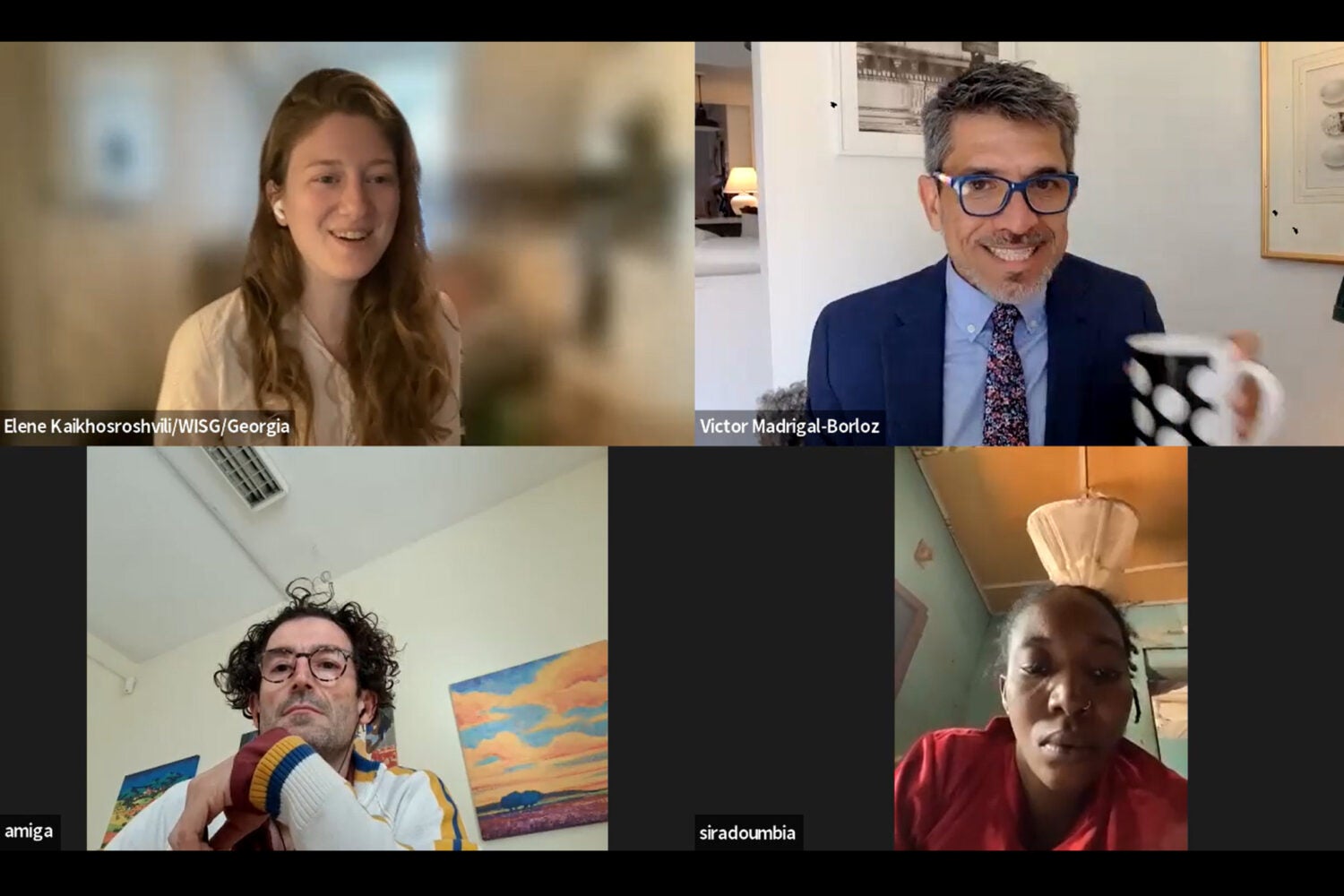Whether in Georgia, Mali, or the United States — participants at a recent public panel say that LGBTI communities from around the world face daunting challenges in realizing their human right to health because of discrimination based on their sexual orientations and gender identities.
The comments were offered by representatives of LGBTI communities and government officials speaking at an April 14 public consultation organized under the helm of U.N. Independent Expert on sexual orientation and gender identity Victor Madrigal-Borloz, who is currently a senior visiting researcher at Harvard Law School’s Human Rights Program.
Aimed at exploring how LGBTI and gender diverse communities’ particular challenges could be incorporated into U.N. member states’ national action plans on the right to health, the public consultation was also part of the preparation of Madrigal-Borloz’s independent expert report to the U.N. Human Rights Council to address goal three of the U.N.’s Sustainable Development Goals targeting good health and well-being at all ages.
“The report is going to be identifying both the challenges with adopting an integrated approach as well as good practices that have advanced the rights of all persons that are affected by violence and discrimination based on their sexual orientation and their gender identity,” said Madrigal-Borloz at the outset of the consultation.
Madrigal-Borloz said he was pleased that the report had garnered significant attention, with more than 80 contributions in response to his call for inputs. Among those processing the inputs are Harvard Law students supporting the independent expert’s work as research assistants.
Speakers included government officials from U.N. member states stationed in Geneva, such as Daniela Ferreira, human rights adviser at the Chilean diplomatic mission. LGBTI activists from various countries also contributed, including Geoffrey Ogwaro from the Ugandan NGO HIVOS; Franck Arteaga from Bolivia-based Manodiversa; and Luiza Drummond Veado of Outright Action International in the USA.
A recurring theme was the grave and manifold threats to the health of transgender individuals. Elene Kaikhosroshvili from the Women’s Initiatives Supporting Group in Georgia underlined how people in her country were forced to undergo full gender reassignment surgery, a very intrusive medical intervention, in order to change their gender marker.
Malian trans activist Sira Doumbia of Afrique Occident Solidaire described the ordeal transgender individuals were subjected to when seeking treatment in hospitals in Mali: “Especially trans women, seeing how they are very effeminate, don’t go out during the day here. Here they only go out at night. And the hospitals here close at night.” Sira said. “What we want is access to treatment, free from discrimination or stigmatization.”
Daniela Ferreira, a diplomat from Chile, a country where a staunch defender of LGBTI rights recently was elected president, explained the new governmental approach to the health of transgender individuals and the broader LGBTI community. According to Ferreira, Chilean health authorities were now directed to move away from pathologizing gender diversity and ordered to identify trans persons by their chosen names.
When it comes to LGBTI communities and the COVID pandemic, measures taken in the name of health policy were not always what they claimed to be. As Geoffrey Ogwaro described, in the case of Uganda the authorities abused health directives to raid LGBTI shelters during the pandemic and torture the inhabitants.
Alexandre Marcel from Afrique Occident Solidaire and Comité IDAHOT France detailed the particularly dire conditions faced by refugees who fled their countries due to violence based on sexual orientation and gender identity. According to Marcel, they suffer under very high rates of HIV infections in an environment marked by marginalization, poverty and the desperate, grindingly long wait to be granted refuge. He said a minority of LGBTI refugees who are HIV negative even intentionally got infected with HIV to have a better chance of receiving asylum in Europe.
In his concluding remarks, Madrigal-Borloz underlined that the public consultation was the culmination of a participatory process. He expressed his gratitude to civil society organizations and states who had substantively contributed to the work of the independent expert. Madrigal-Borloz said he hoped that this participatory approach would become part of his regular reporting cycle for the U.N. Human Rights Council.
